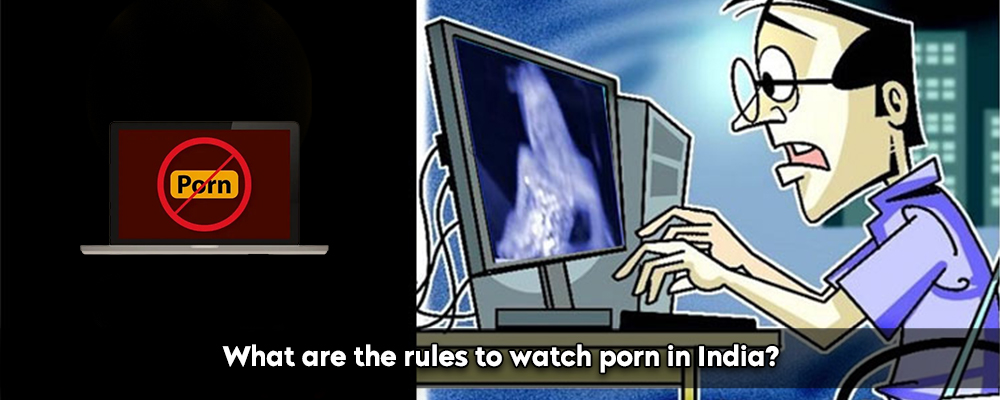It is not always the case that pornography is vulgar or sexually explicit. But pornography will always include any indecent or sexually explicit activity or material.
Porn: About
The portrayal of a vulgar, sexually suggestive, or sensual act or behaviour with the intention of arousing sexual desire is known as porn. Acts pertaining to such explicit sexual conduct, pornographic, or obscene representations that are lascivious, appealing to the prurient interest, or have the potential to deprave and corrupt people are punishable under Indian law.
Need A Legal Advice
The internet is not a lawyer and neither are you. Talk to a real lawyer about your legal issue

Laws Pertaining to Porn in India
Information Technology (IT) Act
- Pornographic content is covered under provisions in Section 66(E) of this act. Legally speaking, it addresses clauses pertaining to the transmission of media that reveal an individual’s private areas without that individual’s consent. This offense has a maximum fine of two lakh rupees, a potential sentence of three years in jail, or both.
- Publication or transmission of pornographic material is prohibited by Section 67 of the IT Act. Any content that is lascivious, appealing to the prurient curiosity, or has the potential to corrupt and deprive people is considered obscene. If this offense is found to be the first time, the punishment is three years in imprisonment and a fine of up to five lakh rupees. Additionally, a fine of up to ten lakh rupees and a sentence of a maximum of five years in jail are imposed for the second conviction of this offense.
Indian Penal Code
- The Indian Penal Code prohibits selling, distributing, exhibiting, or displaying obscene goods that are corrupt or lascivious to another individual in Section 292 and Section 293.
- Those who commit crimes for the first time could be sentenced to two years in jail and a fine of up to 2000 rupees; repeat offenders could be sentenced to five years in prison and a fine of up to 5000 rupees.
- Any defamatory statements made against an individual with the intent to harm their reputation are prohibited by Section 499. The victim may also make a claim for the same thing. Section 500 stipulates the penalties for defamation, which include a fine, up to two years in jail, or both.
Protection of Children from Sexual Offences (POCSO) Act
- A child is defined as a person under the age of eighteen in Section 2(d) of this act. The purpose of this legislation is to protect these children against sexual abuse as well as exploitation.
- The use of children in pornographic content is punishable by up to five years in prison and a fine under the virtue of Section 14 of the POCSO Act.
Shift from Hicklin’s Test to the Test of Community Standards
In the case of Ranjit D. Udeshi v State of Maharashtra, the Indian Supreme Court approved the application of the Hicklin Test. This decision was based on a case that significantly influenced the development of the Hicklin’s test: United States v. Hicklin. Hicklin’s test has two main components:
- It evaluates information taken out of context;
- It makes decisions based on how the material in question seems to affect the most vulnerable readers.
Rules to Watch Porn with Respect to India
- In India, spectators of pornography are required to be a minimum of 18 years old.
- It is strictly prohibited to possess or transmit child pornography. It is considered an illegal offense.
- Indian obscenity rules prohibit the distribution of any content deemed explicit or offensive.
- The IT Act and other restrictions limiting the dissemination of explicit content must be complied with by streaming websites.
- Using a Virtual Private Network to get access to materials that are prohibited might not always be legal, and violating these rules may have legal consequences.
- States may implement these laws in different ways, but the consequences could include jail time. It is of the utmost importance to understand and adhere to local laws.
No Indian statute or law prohibits watching porn in private. In 2015, the Supreme Court made an oral observation that it could not prevent an adult from watching porn in the privacy of his own room, since doing so would have violated his right to personal liberty as guaranteed by Article 21 of the Constitution of India. Furthermore, the Supreme Court’s 2017 ruling in K.M. Puttaswamy v UOI made it clear that a person’s right to privacy is guaranteed by Articles 14, 19, and 21 of the Constitution.
One can talk to a lawyer from Lead India for any kind of legal support. In India, free legal advice online can be obtained at Lead India. Along with receiving free legal advice online, one can also ask questions to the experts online free through Lead India.





 Talk to a Lawyer
Talk to a Lawyer